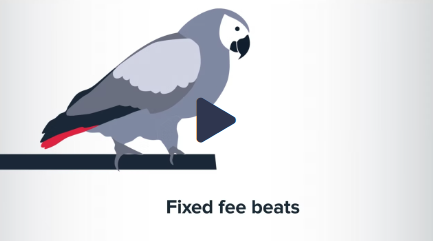One of the problems with receiving good advice is that it might not necessarily be good advice for you.
That might seem baffling at first glance, but for many of your clients it could sum up the situation they find themselves in presently.
It is likely that your clients are having to make some tough budgetary decisions at the moment, as the cost of living crisis and a looming recession has jacked up the financial pressures they’re facing.
One of their considerations might be whether they can save money by reducing their own pension contributions.
While the standard “good” advice is that maintaining payments is key to keeping on track to meet long-term goals, that doesn’t help those individuals and business owners trying to protect both their employees’ and their own futures.
A little bit of empathy can go a long way. Understanding the pressure your clients are under and adopting unorthodox approaches to best suit both their short- and long-term needs could help them successfully navigate this uncertain period.
Read on to discover ways your clients could benefit from ripping up the rulebook and how our innovative approach can help them to reduce their pension contributions without damaging their long-term goals.
The reason your clients are typically advised against stopping their pension contributions
New research from Legal & General shows that 12% of workers over the age of 50 have opted out of their pension contributions, or chosen to reduce them, since the onset of the pandemic in March 2020.
The decision to stop or reduce their contributions could have a detrimental effect on the size of their pension pot with UK workers, on average salaries, potentially missing out on £50,000 of retirement savings by the time they reach State Pension Age.
Workers will not only feel the effects of stopping or reducing their own contributions but will also miss out on the “free money” that is their employer contribution.
The higher the individual’s salary, the more they can expect to lose out on come retirement.
This fear-based, “run of the mill” rhetoric fails to provide practical solutions to the real budgetary issues your clients are facing right now.
A real example of how an alternative approach can create equivalent or greater savings
Imagine your client goes to the doctor for their annual check-up. They confess to opening a bottle of wine every other night, enjoying a regular slice of cake, and that their exercise consists of walking up the stairs to bed.
Their GP would probably tell them to get the running shoes on, eat a salad, and to cut down on the pinot grigio.
But, what if, for once, they got an alternative view?
Your average financial adviser would shake their head worriedly if your client decided to reduce or stop their pension contributions. They would likely point out that, they will lose out on the valuable tax relief at their marginal rate and any compound interest generated by their investment over time.
Fortunately, because of the unique way we work at Grey Parrot, there are alternative options.
We can achieve the same result for your clients, even if they were to reduce their own contributions now.
For example, we recently had a conversation with a very stressed client who was convinced that the only way to keep the lights on at his business was to cut his personal costs to the minimum. Naturally, topping the list of costs to cull were his personal pension contributions.
After years of making regular contributions, the client had a healthy £500,000 in his pension pot and was contributing £1,200 each month.
While he could make immediate savings of £1,200 a month by pausing his contributions, this would have been detrimental to his long-term goals.
Instead, we showed him how it was possible to save £7,000 a year in fees and, at the same time, potentially increase the performance of his underlying investments.
By reducing the amount paid out in fees, the client could halve his regular contributions. This saved him £600 each month, freeing up much needed cash to deploy elsewhere. And, despite halving his contributions, the fee savings and enhanced performance will mean he is no worse off in the future.
In addition to this good news, by continuing to contribute to his pension, he is also able to keep benefiting from the tax relief and increase the positive effects of ongoing compound growth.
Find out more about why we charge fixed fees on our website or watch this short animation to see exactly how and why fixed fees beat percentage-based fees.
Get in touch
The goal of financial planning is to protect your client’s wealth and help them to achieve their long-term lifestyle and retirement goals.
We believe that a fixed-fee advice model offers your clients a fresh, fairer approach that eliminates potential conflicts of interest.
If you have clients who may benefit from a different approach to reaching their financial goals, or if you’d like to explore how you can work more closely with us, please email mail@grey-parrot.co.uk or call us at 02039 871782.
Please note
This article is no substitute for financial advice and should not be treated as such. To determine the best course of action for your individual circumstances, please contact us.
A pension is a long-term investment not normally accessible until 55 (57 from April 2028). The fund value may fluctuate and can go down, which would have an impact on the level of pension benefits available. Past performance is not a reliable indicator of future results.
The tax implications of pension withdrawals will be based on your individual circumstances. Thresholds, percentage rates and tax legislation may change in subsequent Finance Acts.

 Production
Production